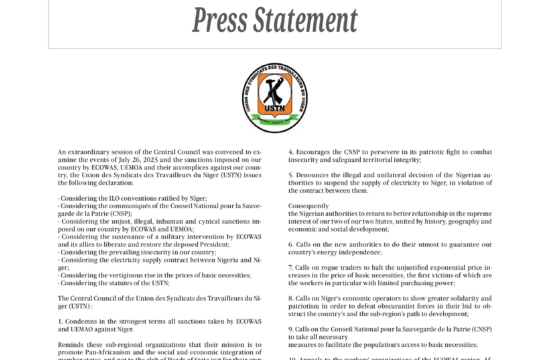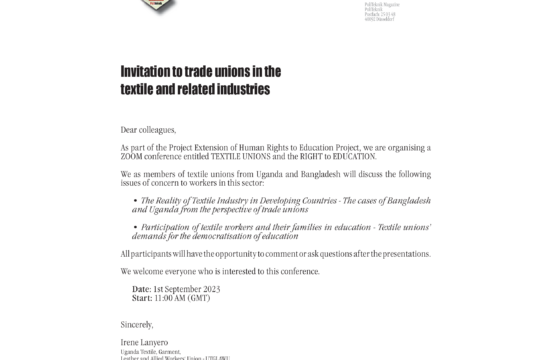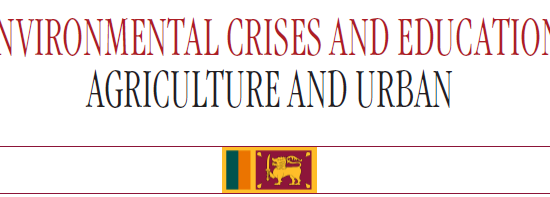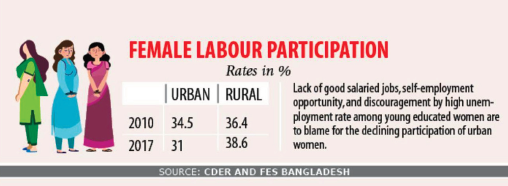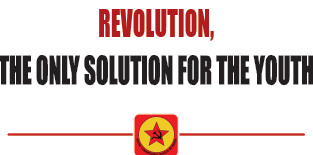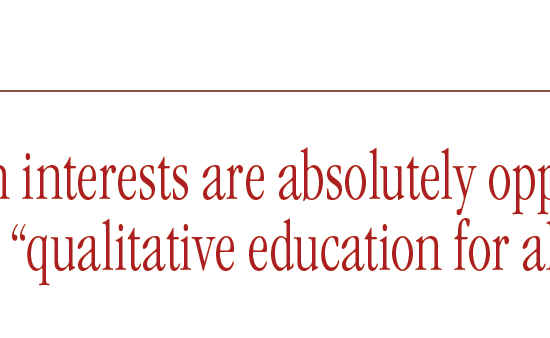NANDO Yavo Jonas
Deputy National Secretary-General of SYNAFETP-CI (Ivory Coast)
The matter of democratising the UN remains a concern, as the current challenges at both regional and global levels are significant. Therefore, implementing reforms to make the organisation more inclusive, representative, and transparent appears critical. In fact, the criticisms and objections to the current UN structure are well founded. In its actual state, the UN privileges the major powers and marginalises the Southern States. While its democratisation would enhance global cooperation and equity, it also raises concerns among the Northern states that fear a loss of influence. Furthermore, potential models and approaches for democratising the UN can also be put forth. Similarly, practical measures can be taken to actualise this process of democratisation. Ultimately, strategies are required to overcome resistance and build consensus for the democratisation of the UN and the task is an ambitious, yet essential one, to address the complexities of the modern world and establish a stronger and effective global organisation.
The United Nations (UN) is a major global organisation entrusted with addressing global challenges and promoting peace, security and development. The objective is to examine the concept of democratising the UN, highlighting the issues and critiques of the current system, and underscoring the necessity to enhance inclusivity, representation, transparency and accountability. And to suggest strategies to ensure transparency, accountability, and to overcome objections, with the aim of reaching a consensus among member states for a more democratic and effective UN.
1. Democratisation efforts at the UN.
The UN is an international organisation that brings nations together from around the world to address global issues and engage in international diplomacy. Founded in 1945, the United Nations was established after World War II to promote peace, security and cooperation among nations. The UN was built on the idea of giving all member states an equal voice, regardless of their size or influence. However, as the world has evolved, so have the challenges and critiques of the United Nations’s structure.
Challenges and critiques of the current United Nations Structure:
One of the primary criticisms directed at the UN is its lack of inclusivity and representation. With 193 member states, the current structure heavily favours the major powers and excludes smaller ones, particularly those from the Global South. Not all countries are equal indecision-making. The second major critique of the UN is the imbalance of power among its member states. The Security Council consists of five permanent members (the United States, United Kingdom, France, China, and Russia) with veto power, exerting a disproportionate influence on decision-making. This dynamic has led to accusations of bias and unfairness in the UN’s work. Lastly, the decision-making process lacks transparency. When significant decisions are made at the UN, some member states feel excluded. Critics argue that the decision-making process can be slow and opaque.
Imperative of democratisation within the United Nations
A more democratised UN would bestow equitability of opportunity upon all member states. In such an embodiment, even the diminutive nations could raise their voices and find resolutions to their concerns. Moreover, augmented inclusiveness and amplified articulation could culminate in more ingenious solutions and heightened sense of global synergy. The democratisation of the UN also is of paramount importance in rectifying global disparities and addressing the concerns of the Global South. These realms frequently find themselves relegated to the fringes, subject to a sense of neglect and marginalisation. Granting them an augmented role and enhanced influence within the UN’s framework would effectively bridge the lacuna in endeavours aimed at realising a more just global order.
2. Potential models and approaches for the democratisation of the UN
Among the potential models for democratising the UN, regional representation and rotation could present a significant transformation. This approach would ensure that each region possesses a seat at the decision-making table, alternating positions periodically to prevent the emergence of power imbalances.
Another option involves expanding the Security Council. Presently, the five permanent members wield substantial influence. By introducing more nations into this exclusive circle, the prospect of forming a more diverse and representative body becomes feasible.
Lastly, a reformation of the General Assembly will be necessary. All member states convene in the General Assembly to deliberate and adopt resolutions. Strengthening the role of the General Assembly could furnish it with grater authority to shape UN policies and ensure that decisions are made in a more transparent and democratic manner.
The UN has made significant strides in advancing peace and cooperation, yet the time has come to infuse it with new vigour. Democratisation endeavours are imperative to address the challenges and criticisms of the current UN structure. By rendering the UN more inclusive, representative, and transparent, it becomes conceivable to forge a stronger and more efficient global organisation.
3. Implementation of Democratisation
To democratise the UN, the following practical steps must be undertaken to expedite the process:
Revise and Amend the UN Charter. The UN Charter, the organisation’s bedrock, was crafted in a different era and necessitates updating to reflect democratisation principles; ensuring alignment with the aspirations of a more inclusive UN. This process demands meticulous deliberation and cooperation among member states.
Forge consensus among member states. The implementation of UN democratisation hinges on fostering consensus among member states with diverse interest and priorities. Diplomacy, negotiation and seeking common ground will be pivotal in overcoming differences and nurturing mutual understanding. Engaging in constructive dialogue and providing opportunities for all member states to shape the future of the UN are paramount.
Establish an effective implementation mechanism. A clear mechanism and structure are imperative to implement the democratisation process. This entails delineating roles and responsibilities, setting measurable objectives, and establishing monitoring and evaluation frameworks. Regular revisions and adjustments will be essential to adapt to changing circumstances and ensure the success of democratisation efforts.
Enhance participation and representation in UN decision-making. To render the UN more democratic, enhancing participation and representation in decision-making processes is crucial. Key focal points encompass: Encouraging greater civil society involvement, mobilising civil society organisations and grassroots movements brings diverse perspectives and skills to the fore. Actively seeking their input and involving them in decision-making processes will result in a more inclusive and effective United Nations, serving the interests of all.
Promoting gender equality and women’s participation, gender equality isn’t merely a buzzword; it’s a cornerstone for a truly democratic United Nations. Women’s voices and experiences must reverberate and be valued within decision-making for a. Measures must be taken to promote gender equality at the UN, including increasing women’s representation in leadership roles and addressing structural barriers to their full participation.
Ensure transparency and accountability in the UN democratisation process. The democratisation of the UN must be accompanied by transparency and accountability to garner trust and support from member states and the global community. Establishing transparency mechanisms is vital. Openness and transparency should serve as guiding principles throughout the democratisation process. Instituting mechanisms such as public hearings, regular reports, and access to information will ensure the decision-making processes are visible and accessible to all. This will help prevent undue influence from powerful actors and bolster public confidence in institutions responsible for their actions. Strengthening these mechanisms within the UN will aid in combating abuses of power and ensuring that decisions are made in the best interest of the global community. Audits, performance evaluations, and independent reviews must be conducted to uphold the integrity of the democratisation process.
Overcoming obstacles and building consensus to democratise the UN. The implementation of democratisation within the United Nations may encounter opposition from powerful member states and interest groups. Here are strategies to surmount these challenges: Addressing concerns of powerful member states. Powerful member states may apprehend that democratisation could dilute their influence or compromise national interests. It is imperative to address their concerns and demonstrate that a more democratic UN benefit all parties in the long run. Engage in constructive dialogue. Presenting successful case studies and underscoring the potential of improved global governance can help allay their apprehensions. Engage in diplomacy and negotiation. Diplomacy and negotiation are pivotal tools to forge consensus and garner support for UN democratisation. Engaging with member states through diplomatic channels, bilateral discussions, and multilateral negotiations can aid in finding common ground toward the shared objective of crating a more democratic and equitable UN.
The democratisation of the United Nations is not merely a significant stride toward a more inclusive and representative global governance system; it is also imperative to grapple with the complexities of the modern world. By embracing reforms that bolster participation, transparency, and accountability, the UN can more effectively serve the interests of all member states and adeptly confront the global challenges we face today. Through the collective efforts of member states, civil society, and international actors, the vision of a truly democratic and potent UN can materialise, heralding an era of cooperation, equity and justice on the global stage.
SOURCES
Academic/scientific articles:
1. — Bertrand Badie, « La démocratie à l’ONU : un défi pour le multilatéralisme », Revue internationale et stratégique, 2005/4 (n° 60), p. 9-18.
2. — Thomas G. Weiss, « Les réformes du Conseil de sécurité : enjeux et perspectives », Politique étrangère, 2004/4 (Hiver), p. 849-860.
3. — Simon Chesterman, « L’Assemblée générale des Nations Unies : un organe sous-estimé ? », Annuaire français de relations internationales, vol. 6, 2005, p. 17-32.
4. — Charlotte Dany, « La société civile et la démocratisation de l’ONU : le cas des ONG », Études internationales, vol. 38, n° 3, 2007, p. 405-424.
5. — Anne Marie Goetz, « L’égalité des sexes à l’ONU : un objectif lointain ? », Critique internationale, 2007/1 (n° 34), p. 9-26.
Press articles:
1. — Jean-Marc de La Sablière, « L’ONU face au défi de la démocratisation », Le Monde, 23 septembre 2020.
2. — Pierre Haski, « Comment démocratiser l’ONU sans la paralyser ? », L’Obs, 26 septembre 2018.
3. — Kofi Annan, « L’ONU doit se réformer pour être plus représentative », Le Figaro, 21 septembre 2016.
4. — Rédaction Afrique France 24, « Les pays du Sud réclament plus de voix à l’ONU », France 24, 25 septembre 2019.


